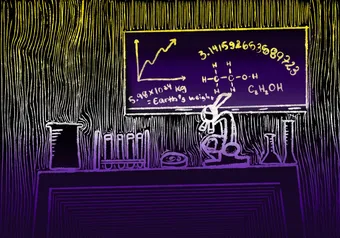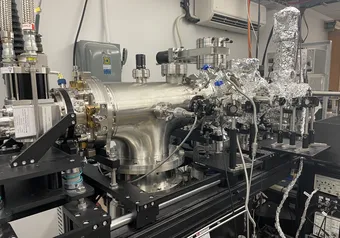Everyone is taught that washing your hands to get rid of germs will keep you healthy. What if that’s not the case at all? What if our constant obsession with sanitation may actually have a negative impact on our health?
UBC microbiology professor Brett Finlay and University of Calgary professor Marie-Claire Arrieta have come out with a new book titled Let Them Eat Dirt, describing the negative impacts of our overly sanitized world.
“In our quest to rid this world of infectious disease in the past 100 years, we have done everything we can to get rid of microbes,” said Finlay. "When you look at the rates of infectious diseases, we have done a great job — they have gone way down."
However, Finlay also went on to state that western diseases like asthma, obesity and gastrointestinal disorders have been going the opposite direction, rapidly increasing in occurrence. The book argues a child should be a child and be exposed to the microbes which over-sanitation has been depriving our bodies of. This exposure is already known to be vital for the development of the immune system, but has recently also been linked to western diseases.
One night while having dinner, Finlay’s wife, a pediatrician who researches on forms of altering microbes with antibiotics, had an idea — “You know Brett, kids who get antibiotics in the first year of life have higher rates of asthma.”
Finlay’s interest in this topic peaked and he started to think about this concept. After reading up on what his wife had told him, he found that there were “correlations with increased asthma with antibiotics early in life.” However, no experimentation had been done at the time. From there, Finlay and his lab began to experiment.
[Sorry, video not found. You can contact webmaster@ubyssey.ca to fix the issue]
Their experiments consisted of ministering young mice with antibiotics and then later giving them asthma. After this, Finlay discovered that the antibiotics made the mice highly vulnerable to the disease. This confirmed that mice that were young in life were susceptible to asthma after being treated with antibiotics.
Following this, Finlay moved on to his next experiment with Arrieta, who studied under him. They went from studying mice to studying children and began to look at the microbes in young children that later developed asthma. Both discovered that it was unlikely for children who had four specific types of microbes to develop the disease and conversely, the chances were very high that children with few of these microbes would develop asthma.
For the next part of this process, Arrieta took a mouse sans microbes and gave it the feces of a child that later developed asthma. They then “spiked” the mouse with the proper four microbes. Finlay and Arrieta discovered that if those four microbes were present, they then decreased the mouse’s chance of developing the disease.
"That basically said that microbes would now play a role in infectious diseases and asthma," explained Finlay.
After carrying out these experiments, Arrieta brought up the possibility of a book over a beer with Finlay. While he was hesitant at first, he decided it was an important enough message and they began to write it in a way that the reader would not need a PhD to understand, making it accessible to all types of people. Finlay began writing one end of the book and Arrieta began the other. They met in the middle and “the book was born.”
Both professors included “do and don’t” lists that give advice on how to carry out a healthy lifestyle without being obsessively clean. Although this book is directed towards parents and people who work with children, everyone can benefit from it. For someone who doesn’t know the science lingo, it was clear, easy to follow and most importantly, interesting.
We were all given an immune system for a reason. As Finlay put it, “if you don’t use it, you lose it.” So stop washing your hands 50 times a day and “chill a bit.”
First online
Share this article



![['']](https://storage.googleapis.com/ubyssey/media/renditions/LetThemEatDirt_CMYK300dpi.width-1000.format-webp.webp)





